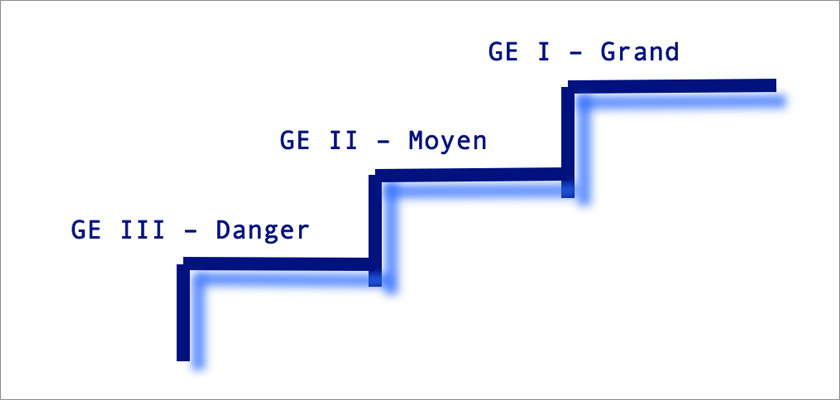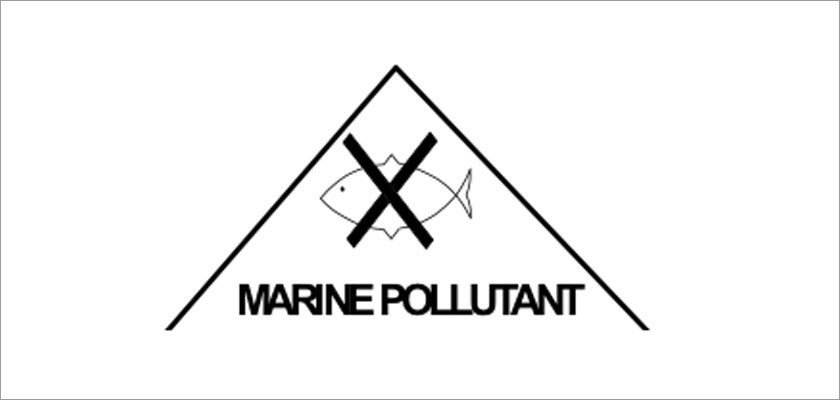
En vertu des lois régissant les matières dangereuses, Desgagnés Transarctik inc., Nunavut Sealink and Supply inc. et Taqramut Transport inc. ne pourront, en aucun temps, accepter de transporter des matières dangereuses si l’envoi n’est pas accompagné d’une déclaration dûment remplie. Le transport maritime est régi par le Code maritime international des marchandises dangereuses (International Maritime Dangerous Goods (IMDG). Tout expéditeur et/ou fournisseur qui expédiera des matières dangereuses par Desgagnés Transarctik inc., Nunavut Sealink and Supply inc. et Taqramut Transport inc. devra se conformer à ce code.
RÈGLEMENT
Le règlement sur le transport des marchandises dangereuses s’applique à la manutention, à la demande de transport et à tous les modes de transport de marchandises dangereuses. Les inspecteurs de Transports Canada peuvent à tout moment vérifier la conformité de l'envoi, saisir ou prélever des échantillons et reproduire des documents quant à l'envoi de la cargaison. Un transporteur qui ne se soumet pas à cette loi est passible d’une amende .
FORMATION
La personne qui manutentionne, transporte ou demande le transport de matières dangereuses doit posséder une formation adéquate selon ses fonctions, sinon elle doit être en présence ou sous la surveillance directe d’une personne possédant une formation appropriée. La formation doit être mise à jour selon les règlements impliqués et doit être complétée à la satisfaction de l’employeur.
RESPONSABILITÉS COMMUNES DES PARTIES CONCERNÉES
Les responsabilités communes des expéditeurs, des transporteurs et des manutentionnaires sont de s’assurer que toutes les exigences soient respectées et d'interdire la manutention de marchandises non conformes. De plus, ils doivent apposer et vérifier les indications de danger puis, le cas échéant, les enlever ainsi que conserver les documents pendant deux ans.
RESPONSABILITÉ DE L’EXPÉDITEUR
L’expéditeur doit:
classifier, emballer et identifier les marchandises;
vérifier les limites, les dispositions particulières et exemptions applicables aux marchandises expédiées;
fournir les plaques requises;
préparer le document d’expédition;
enregistrer un plan d’intervention d’urgence (PIU) lorsque requis.
Note:
Les destinataires et importateurs qui retournent des matières dangereuses doivent assumer les mêmes responsabilités qu'un expéditeur.
DESCRIPTION D’EXPÉDITION
Chaque marchandise dangereuse doit avoir une description complète d’expédition selon le nombre et le type de colis, la description des marchandises, le groupe UN, la classe, le groupe d’emballage et la masse brute en kilos.
GROUPE D’EMBALLAGE
Le groupe d’emballage (GE) est une indication du niveau de danger d’un produit et du type d’emballage requis.

NUMÉRO «UN»
Le numéro UN est un code de quatre chiffres:
«UN» (Nations Unies) 0001-3999
Le numéro d’identification correspond à une désignation officielle de transport selon la liste des marchandises dangereuses de l'ONU.
Essence UN 1203
Peinture UN 1263
CLASSE DES MATIÈRES DANGEREUSES
CLASSE 1 - EXPLOSIFS
CLASSE 2 - GAZ
CLASSE 3 - LIQUIDES INFLAMMABLES
CLASSE 4 - SOLIDES INFLAMMABLES
CLASSE 5 - MATIÈRES COMBURANTES ET PEROXYDES ORGANIQUES
CLASSE 6 - MATIÈRES TOXIQUES ET INFECTIEUSES
CLASSE 7 - MATIÈRES RADIOACTIVES
CLASSE 8 - MATIÈRES CORROSIVES
CLASSE 9 - PRODUITS, MATIÈRES OU ORGANISMES DIVERS
POLLUANTS MARINS

Il incombe à la compagnie d’emballage de connaître la classification concernant les polluants marins.
CHOIX DE LA DÉSIGNATION EXACTE
La désignation officielle de transport doit apparaître en MAJUSCULES dans la liste des matières dangereuses avec un ajout de désignation officielle, par exemple, «solution» ou «mélange», liquide ou solide s’il y a plus d’une phase possible, indiquer le nom technique qui doit être un nom chimique reconnu.
FICHES SIGNALÉTIQUES
Les fiches signalétiques doivent provenir du fabricant. Chaque produit doit avoir sa propre fiche signalétique selon sa composition.
INDICATIONS DE DANGER
Les étiquettes et plaques doivent être de taille réglementaire et pouvoir résister à trois mois d’immersion en mer. Elles doivent apparaître tel un carré sur sa pointe, être visibles et lisibles en tout temps (ne pas être obstruées par un autre item), en plus d'être apposées sur un fond de couleur contrastante.
DOCUMENTATION
Un formulaire de déclaration doit être dûment complété et puisqu'il n'y a aucun format obligatoire, il peut être conçu selon le modèle prévu au code IMDG. Quatre copies sont requises, soit une copie pour l’expéditeur, une pour le transporteur terrestre, une pour le transporteur maritime et une pour le destinataire.
INFORMATIONS REQUISES
Afin de bien compléter le formulaire de déclaration, l'information suivante est requise : le nom et l'adresse de l’expéditeur et du destinataire ainsi que la date d'expédition. De plus, il faut inscrire sur chacune des marchandises dangereuses le nombre de colis et la quantité totale par type de matières dangereuses, et ce, en unité métrique. Le tout doit être certifié par l’expéditeur et la personne responsable du chargement.
CARGAISON RÉTROGRADE
Relativement à la cargaison rétrograde (cargaison provenant du nord), Desgagnés Transarctik inc., Nunavut Sealink and Supply inc. et Taqramut Transport inc., sont régies par la même réglementation et elles ne pourront, en aucun cas, faire le transport de matières dangereuses si l’envoi n’est pas accompagné d’une déclaration dûment remplie.
Afin d’obtenir des informations supplémentaires, nous vous prions de vous référer au site de Transports Canada concernant les marchandises dangereuses au www.tc.qc.ca, le site www.imo.org/ (International maritime organization) ou www.thecompliancecenter.com. Le site du centre de conformité ICC.